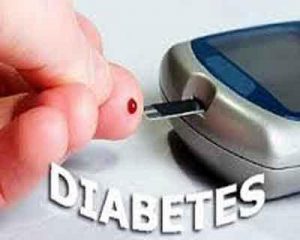- Home
- Editorial
- News
- Practice Guidelines
- Anesthesiology Guidelines
- Cancer Guidelines
- Cardiac Sciences Guidelines
- Critical Care Guidelines
- Dentistry Guidelines
- Dermatology Guidelines
- Diabetes and Endo Guidelines
- Diagnostics Guidelines
- ENT Guidelines
- Featured Practice Guidelines
- Gastroenterology Guidelines
- Geriatrics Guidelines
- Medicine Guidelines
- Nephrology Guidelines
- Neurosciences Guidelines
- Obs and Gynae Guidelines
- Ophthalmology Guidelines
- Orthopaedics Guidelines
- Paediatrics Guidelines
- Psychiatry Guidelines
- Pulmonology Guidelines
- Radiology Guidelines
- Surgery Guidelines
- Urology Guidelines
GluNet: A deep learning framework that can forecast blood sugar accurately

Researchers have developed GluNet: A deep learning framework for accurate blood sugar forecasting. Deep learning is the latest addition in healthcare and medical research to achieve state-of-the-art results in a range of tasks including disease diagnosis. The findings of the study regarding this development have been published in the IEEE Journal of Biomedical and Health Informatics.
For people with Type 1 diabetes (T1D), forecasting of blood sugar can be used to effectively avoid hyperglycemia, hypoglycemia and associated complications. The latest continuous glucose monitoring (CGM) technology allows people to observe blood sugar in real-time. However, an accurate blood sugar forecast remains a challenge.
Control of blood sugar is essential for diabetes management. Current digital therapeutic approaches for subjects with Type 1 diabetes mellitus (T1DM) such as the artificial pancreas and insulin bolus calculators leverage machine learning techniques for predicting subcutaneous glucose for improved control. Deep learning has recently been applied in healthcare and medical research to achieve state-of-the-art results in a range of tasks including disease diagnosis, and patient state prediction among others.
Researchers have introduced GluNet, a framework that leverages on a personalized deep neural network to predict the probabilistic distribution of short-term (30-60 minutes) future CGM measurements for subjects with T1D based on their historical data including glucose measurements, meal information, insulin doses, and other factors. It adopts the latest deep learning techniques consisting of four components: data pre-processing, label transform/recover, multi-layers of dilated convolution neural network (CNN), and post-processing. The method is evaluated in-silico for both adult and adolescent subjects.
The results show significant improvements over existing methods in the literature through a comprehensive comparison in terms of root mean square error (RMSE) (8.88 ± 0.77 mg/dL) with short time lag (0.83 ± 0.40 minutes) for prediction horizons (PH) = 30 mins (minutes), and RMSE (19.90 ± 3.17 mg/dL) with time lag (16.43 ± 4.07 mins) for PH = 60 mins for virtual adult subjects. In addition, GluNet is also tested on two clinical data sets. Results show that it achieves an RMSE (19.28 ± 2.76 mg/dL) with time lag (8.03 ± 4.07 mins) for PH = 30 mins and an RMSE (31.83 ± 3.49 mg/dL) with time lag (17.78 ± 8.00 mins) for PH = 60 mins.
These are the best reported results for blood sugar forecasting when compared with other methods including the neural network for predicting glucose (NNPG), the support vector regression (SVR), the latent variable with exogenous input (LVX), and the autoregression with exogenous input (ARX) algorithm.
For further reference log on to :
DOI: 10.1109/JBHI.2019.2931842

Disclaimer: This site is primarily intended for healthcare professionals. Any content/information on this website does not replace the advice of medical and/or health professionals and should not be construed as medical/diagnostic advice/endorsement or prescription. Use of this site is subject to our terms of use, privacy policy, advertisement policy. © 2020 Minerva Medical Treatment Pvt Ltd